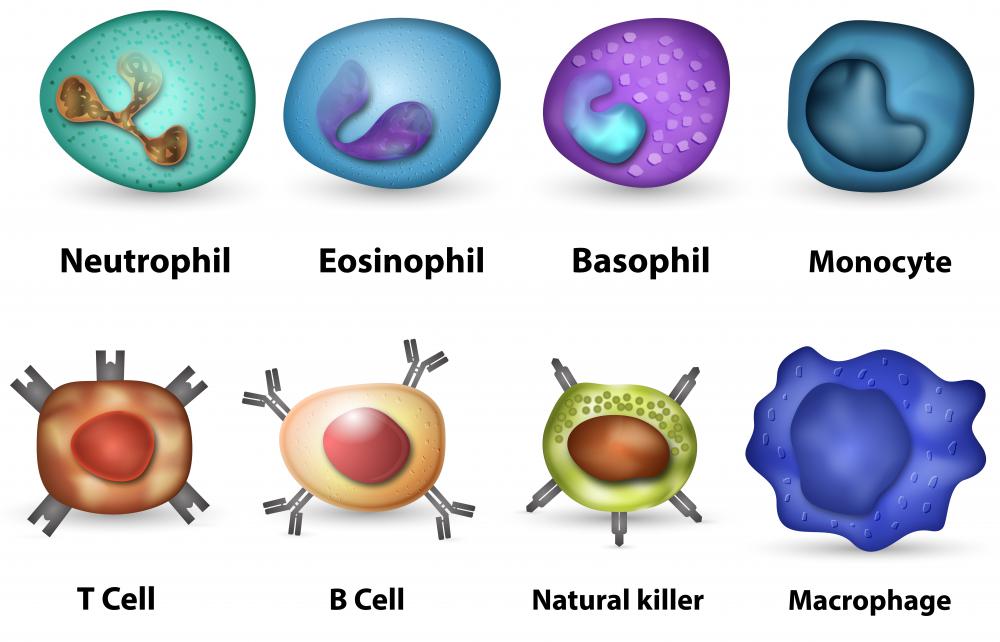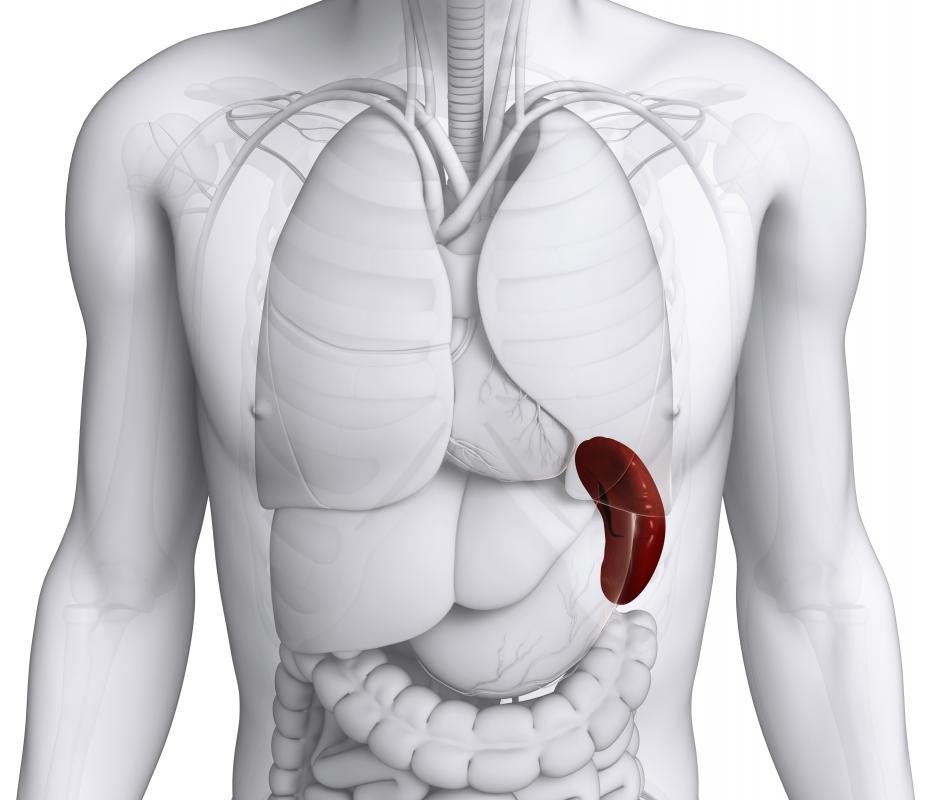At WiseGEEK, we're committed to delivering accurate, trustworthy information. Our expert-authored content is rigorously fact-checked and sourced from credible authorities. Discover how we uphold the highest standards in providing you with reliable knowledge.
What are the Different Types of Neutropenia Treatment?
Neutropenia is a condition in which the body produces an abnormally low amount of a type of cell called neutrophils. There are many potential causes for this disorder. Often, the type of neutropenia treatment used depends on the underlying cause, so a doctor typically needs to determine why the patient has this condition before taking action.
Neutrophils, a kind of white blood cell, are essential for fighting off infections and keeping the immune system strong. The body's immune system begins to be compromised when the neutrophil count is below 1,000 cells per microliter of blood. If the count falls below 500 cells per microliter, the immune system is severely compromised. Without adequate levels of neutrophils, the patient has a greater risk of dying from an infection.

In cases of mild neutropenia, a doctor may simply monitor the patient and wait for the body to produce more neutrophils. The condition is often diagnosed when a patient suffers from an infection. In these cases, neutropenia treatment will often include a course of antibiotics to help the body recover.
Some patients develop neutropenia as a result of taking certain drugs. These include phenytoin, sulfa drugs, and chloramphenicol, as well as medications that treat cancer. If ceasing medications does not compromise the patient's health in other ways, a doctor may recommend that the patient stop taking such drugs.

Toxins and exposure to allergens may also result in low levels of neutrophils. If toxins, such as insecticides and benzenes, are to blame, a doctor usually advises the patient to avoid exposure. When an allergic disorder is the cause of low neutrophils, a physician may prescribe medications. This type of neutropenia treatment can also include avoiding any potential allergens.

Patients may be given a medication to encourage their bone marrow to produce more neutrophils. These drugs are called colony-stimulating factors. Corticosteroids may also be helpful if the patient's neutropenia is due to an autoimmune reaction, such as a condition like lupus or rheumatoid arthritis.
More extreme measures may be needed for certain causes of low neutrophil levels. If a patient has an enlarged spleen, the organ may need to be surgically removed. Enlarged spleens may be responsible for destroying healthy neutrophils.

A bone marrow transplant may be the best course of neutropenia treatment for severe cases. This operation may be recommended if the patient suffers from low neutrophils due to leukemia. It may also be used in cases of aplastic anemia, which is a rare condition in which the bone marrow simply stops producing adequate blood cells.
AS FEATURED ON:
AS FEATURED ON:















Discussion Comments
I've never heard of this disorder before. I do have allergies though, so I suppose there's a chance that I could develop this.
However, I take an anti-histamine every day, so I think that should probably prevent me from developing neutropenia. Still, I'm glad I have this information now. If I start to get infections a lot or something like that, I'll make sure to bring this up with my doctor.
@KaBoom - That makes sense. I feel like every time I go to the doctor they always want to do a "CBC with differential," whatever that is!
I have to say that it must be really hard to figure out what to do if someone develops chemotherapy neutropenia. I mean, they're obviously getting chemotherapy for cancer, which can kill you. I'm pretty sure stopping chemotherapy because someone has neutropenia isn't an option!
I imagine in that case a doctor would have to try other neutropenia treatments, like stimulating the bone marrow or corticosteroids. I suppose if the person had bone cancer the bone marrow stimulation probably wouldn't be an option though.
Very interesting. I know doctors order blood tests to do a blood count (I think it's called a CBC) to diagnose different things like infections a lot. So I guess they probably use a test like this to diagnose neutropenia.
Anyway, since neutrophils fight infection, I bet neutropenia symptoms definitely include more frequent infections. I think this probably makes it easy for a doctor to diagnose this though. If someone has an infection, they would normally have more neutrophils. So if a person has an infection and a lot neutrophil count, they probably have neutropenia!
Post your comments